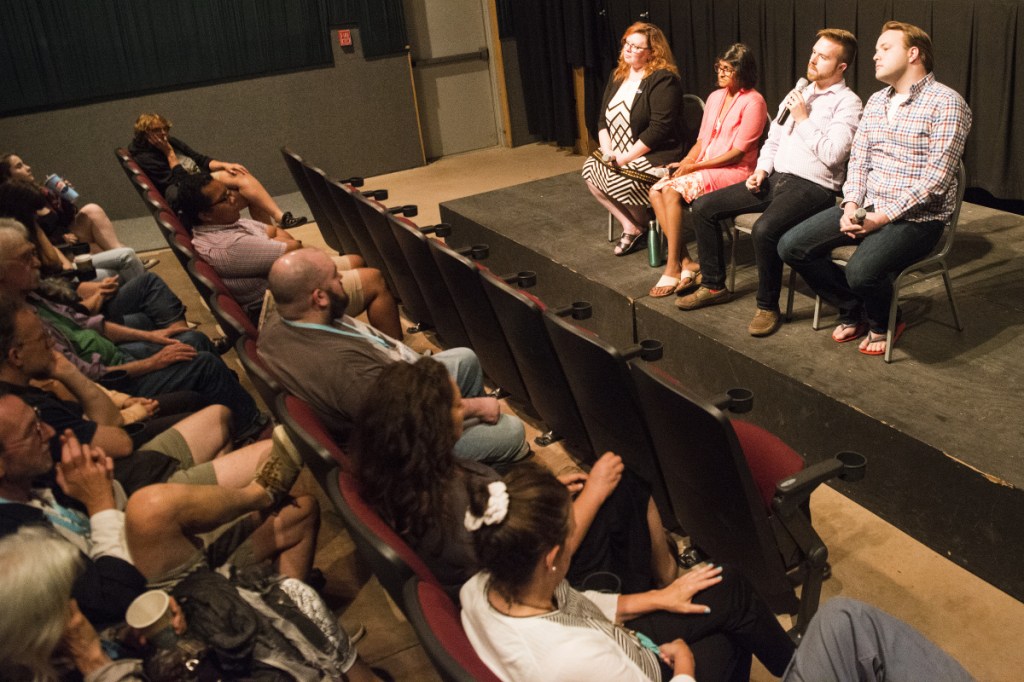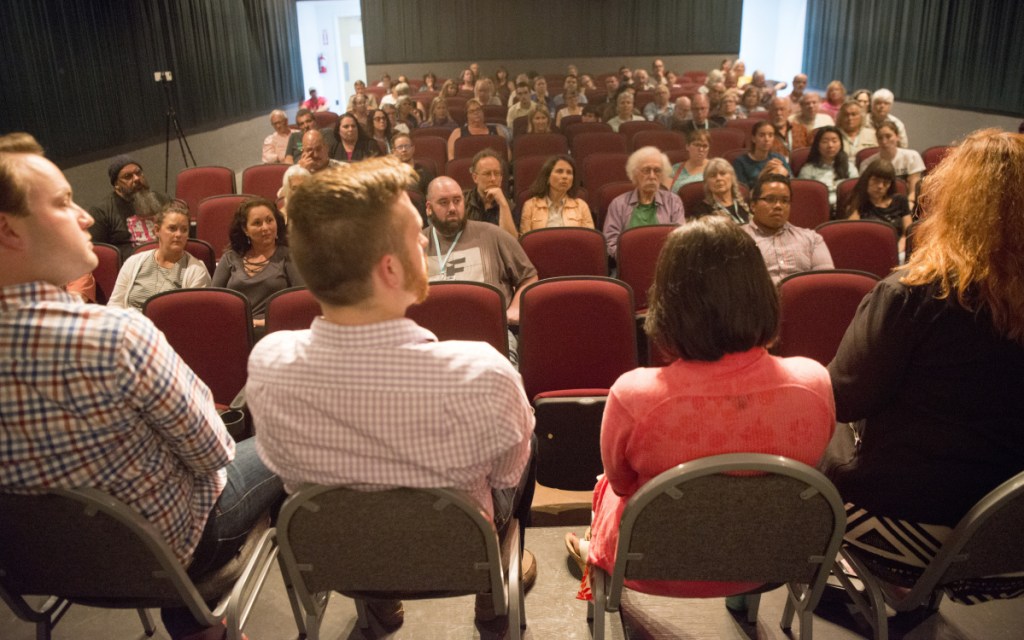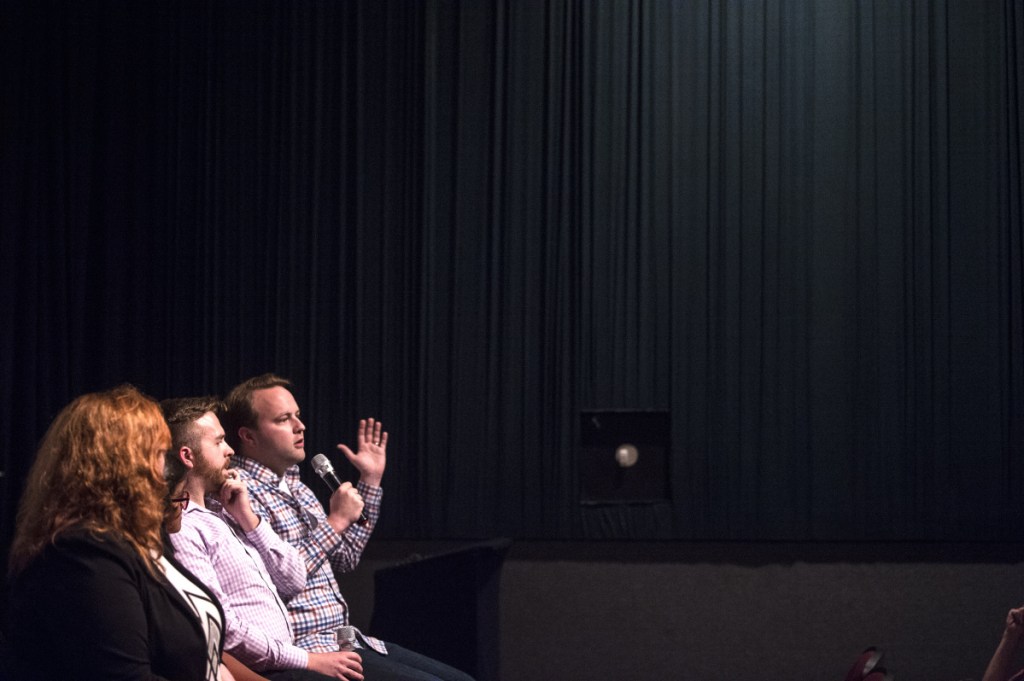WATERVILLE — In the film “The Miseducation of Cameron Post,” the titular character is plucked from her life and banished to a Christian conversion therapy camp in the 1990s after she is caught in an intimate moment with another girl at a school dance.
Cameron (Chloe Grace Moretz) and the other gay teens who have been sent to the camp by their parents – mostly without a choice – to undergo the “therapy” are told by teachers and counselors that their same-sex attraction is both sinful and a result of trauma. Some of the kids are pushed to the brink of self-hatred and depression during their time at the camp, called God’s Promise. Cameron, during a moment of defeat in which she reluctantly and momentarily gives in to the treatment, says, “I’m tired of feeling disgusted with myself.”
The film highlights many of the same issues raised by Maine lawmakers who attempted to pass a law during the last legislative session that would have prohibited state-licensed counselors and therapists from engaging in “conversion therapy” to change an underage client’s sexual orientation or gender identity. Gov. Paul LePage vetoed the bill, L.D. 912, – calling it “bad public policy” with too broad a definition – and lawmakers sustained his veto.
After a screening of “The Miseducation of Cameron Post” at the Maine International Film Festival on Tuesday night, Rep. Colleen Madigan, D-Waterville, a licensed clinical social worker; Rep. Ryan Fecteau, D-Biddeford; Oamshri Amarasingham, the policy director at the ACLU of Maine; and Rep. Matt Moonen, D-Portland, who is also the executive director of Equality Maine, conducted a panel discussion about their efforts to pass legislation banning conversion therapy and why they believe it is important.
Fecteau, who sponsored the legislation, told a packed theater at Railroad Square Cinema that LePage was the first governor in the nation to veto a bill on conversion therapy.
While panelists told the audience that they were not aware of a camp operating in Maine such as the one depicted in the film, they said that type of therapy is carried out generally in a subtle way using coded language.
“To be clear, (opponents) never suggested in the testimony that they did this. So it’s very crafty, right?” Fecteau said. “They’d say, ‘I oppose this bill for all of these reasons, but none of which admit the fact that I do this.’ ” Some licensed therapists, Fecteau said, wouldn’t answer in their written testimony questions whether they practiced conversion therapy.
Moonen said some tried to rebrand the practice under a different name.
“The Christian Civic League and other opponents tried to make a distinction between conversion therapy and what they called reparative therapy. Ryan would ask if they practiced conversion therapy and they would say, ‘Oh, no, but reparative therapy is very different from that,’ ” Moonen said.
Religious freedom and parental rights were two arguments opponents of the bill cited in their testimony, which the panelists said did not hold up for them.
“We wanted to be absolutely clear that speaking in confidence with someone from your faith was protected activity. The bill really walked a really clear line,” said Amarasingham of the ACLU.
Fecteau told the story about when he was pushed toward conversion therapy by a university priest whom he respected and trusted while in college. He said he had been proud to be openly gay, but that the suggestion that something was wrong with him triggered suicidal thoughts for the first time in his life.
The other panelists said this spoke to the coercive nature of the therapy.
“The Miseducation of Cameron Post” will be shown again at 9:15 p.m. Thursday at Railroad Square Cinemas in Waterville.
Emily Higginbotham can be contacted at 861-9239 or at:
ehigginbotham@centralmaine.com
Send questions/comments to the editors.






Success. Please wait for the page to reload. If the page does not reload within 5 seconds, please refresh the page.
Enter your email and password to access comments.
Hi, to comment on stories you must . This profile is in addition to your subscription and website login.
Already have a commenting profile? .
Invalid username/password.
Please check your email to confirm and complete your registration.
Only subscribers are eligible to post comments. Please subscribe or login first for digital access. Here’s why.
Use the form below to reset your password. When you've submitted your account email, we will send an email with a reset code.